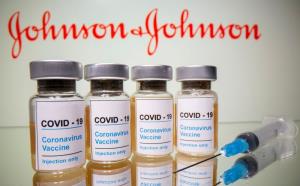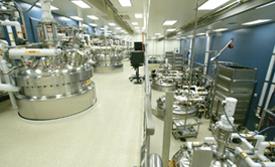 Data on the efficacy of the Johnson & Johnson (J&J) COVID-19 adenovirus vector vaccine, developed by E.U. subsidiary Janssen Laboratories, was released, following approval by the FDA and CDC. The vaccine demonstrated 66 percent efficacy in preventing moderate-to-severe disease. Among the 20,000 vaccinates, 66 cases of COVID-19 were diagnosed compared to 193 in the control group receiving a placebo. The J&J vaccine was 85 percent effective in preventing severe and life-threatening complications. There were no fatalities in the vaccinated group compared to seven in the control group and none of the vaccine recipients required admission to a hospital. The J&J vaccine appeared to be effective in reducing transmission that is important with respect to suppressing the national incidence rate.
Data on the efficacy of the Johnson & Johnson (J&J) COVID-19 adenovirus vector vaccine, developed by E.U. subsidiary Janssen Laboratories, was released, following approval by the FDA and CDC. The vaccine demonstrated 66 percent efficacy in preventing moderate-to-severe disease. Among the 20,000 vaccinates, 66 cases of COVID-19 were diagnosed compared to 193 in the control group receiving a placebo. The J&J vaccine was 85 percent effective in preventing severe and life-threatening complications. There were no fatalities in the vaccinated group compared to seven in the control group and none of the vaccine recipients required admission to a hospital. The J&J vaccine appeared to be effective in reducing transmission that is important with respect to suppressing the national incidence rate.
The J&J vaccine was 82 percent effective in preventing severe or life-threatening disease against the South African B.1.351 variant and was beneficial in preventing complications from the P.2 variant prevalent in Brazil.

Advantages for the J&J vaccine include stimulation of durable immunity with one injection and the ability to be stored and transported at refrigeration temperature. J&J anticipate delivering 20 million doses in March and 100 million doses by the end of June. Supply will be boosted following a recent announcement that Merck Inc. will also manufacture the J&J vaccine in the U.S.
An ethical consideration has arisen following guidance that Catholics should preferably receive either the Moderna or Pfizer mRNA vaccines. This is based on the fact that the Vatican regards the J&J vaccine as “morality compromised” since the product was developed and tested using cell lines derived from fetal tissue harvested in the 1970’s. There appears to be some conflict concerning advice offered by the U.S. Conference of Bishops and the opinion of Pope Francis who considers it to be a moral duty to be vaccinated to prevent disease and death.